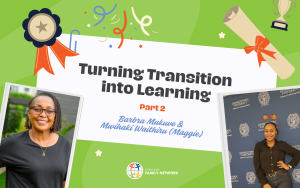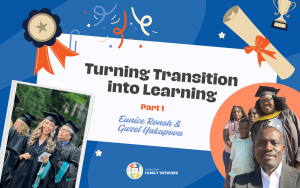
By Catherine Mathieu
December 2019
When I was twenty-one, I left France to study in Brazil and, without intending it, have been an expat ever since. I didn’t think of myself as an expat then (and would probably have been horrified by the term). I was a young woman who wanted to see the world and have adventures. I left France with every expectation that with the right attitude I could integrate myself into any new culture. To me, a Frenchwoman, Brazil seemed exotic, romantic and everything my native culture was not. A hot, steamy climate, an incredibly diverse population, seductive music and dancing, and with the political energy of a society emerging from a period of dictatorship.
I arrived just before Christmas, which is Brazil’s summer, the end of the school year, and when people generally head from the cities to the beach. Wonderful, I thought—how exciting that the seasons and even vacations were turned on their heads. I had really crossed into another land, which was exactly what I had intended. Brazil was delivering the authentic adventure I was looking for.
But the fat-bellied Santas sweating in their red suits? The European Christmas jingles? The fake snow, unmelting in 35 centigrade heat? These were not exotic. They were derivations of my own culture. The worst offender, though, was the Brazilian Christmas tree—the tuya—in fact, an evergreen (also known as thuja) used for hedges in Europe. The tuya tree, decorated, and strung with colored lights—a tropical version of the pine tree in the northern European Christmas tradition, was my culture shock, not because it was different, but because it wasn’t different enough.
A few years later, I went on a road trip with three Brazilian friends. We travelled to northeastern Brazil, and I loved every moment of it. But my friends did not have the same experience. Where I saw a fascinating diversity of communities and cultures, and incredible beaches, they saw poverty, exploitation and isolation. I wouldn’t have recognized it then, but I was still basically a tourist looking only for what was different and exciting, and overlooking what wasn’t. It’s not that I was blind to the poverty, but more that it didn’t affect me in the same way it affected my companions.
At age forty-four, I came to Washington with my Brazilian husband and our teenagers. Again, I was disappointed by what appeared to me to be poor derivations of French culture, especially anything to do with food!
Now, over fifteen years later, I finally understand the role that our expectations can play when we relocate. My expectations at the age of twenty-one were that the new culture was going to delight and stimulate me, give me new ideas, and help me understand the world. Wrapped up in this was the expectation that if something was similar to what I knew from my youth in France, it needed to be identical. If it wasn’t identical, it must inferior. According to this view, anything derivative was automatically inferior. Ironically, I did not even see how much was derivative in my own culture. (The pine tree at Christmas? A tradition imported from Germany to France in the 19th century, becoming widespread by 1930, meaning my own grandparents would probably not have grown up with it.) I did not understand how these expectations prevented me from really seeing my new environment for what it was. I left France thinking that with energy and intelligence, I would be able to become as Brazilian as I wanted, but I certainly didn’t want to integrate into a culture which copied mine—where was the romanticism in that goal? It has taken me literally a lifetime to understand what being open-minded really means, which is to accept a culture on its own terms, not mine.
But all was not lost for my younger and less-wise self. When I married, we started a family tradition in Brazil. We would buy a fruit tree at Christmas, decorate it, and then plant it after the holidays. My garden in São Paulo is now filled with pomegranate, acerola, orange and berry trees. Christmas for me and my family is about hot weather, fake snow, and lots of fresh fruit.






